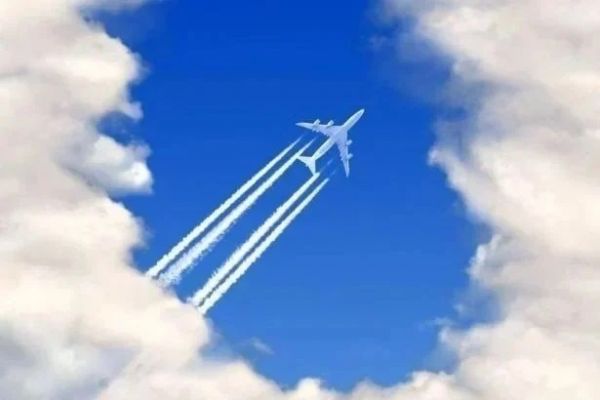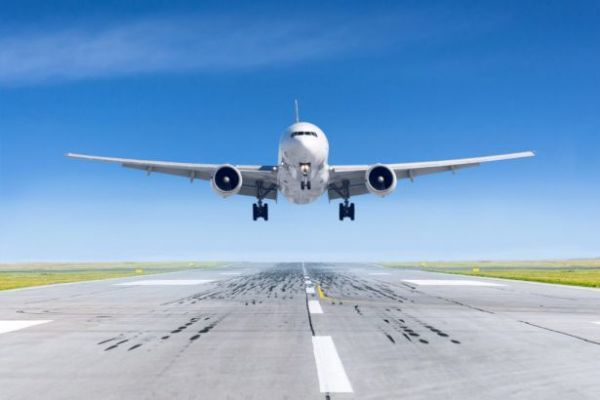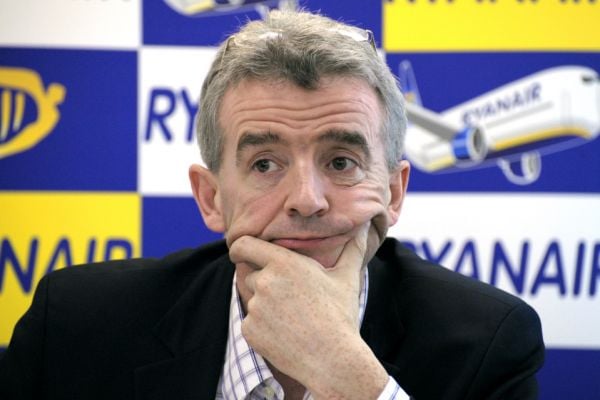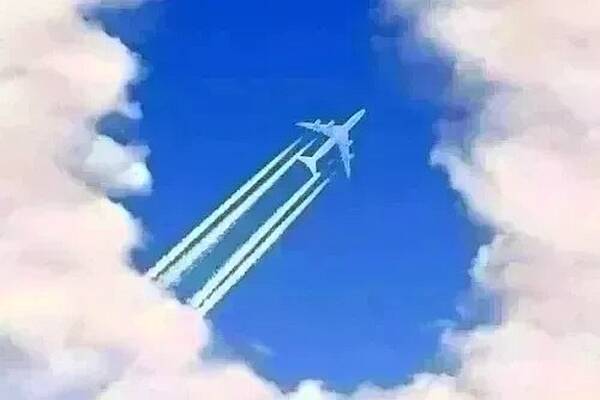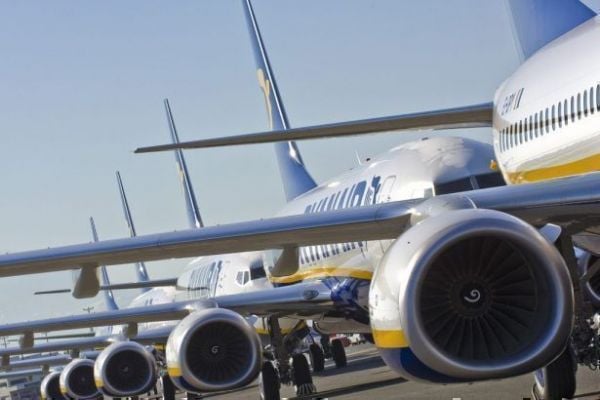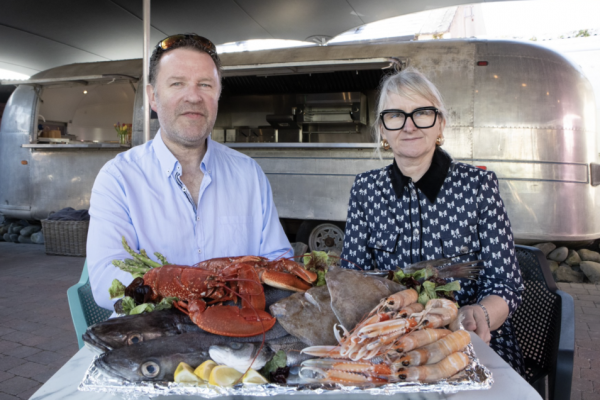The price of oil LCOc1 has surged to its highest point since 2008 after Russia's invasion of Ukraine, adding to airline costs at a time when carriers have been struggling to recover from a pandemic-related collapse in demand.
Oil prices were already strong because of tight global supplies, but the conflict in Ukraine has sent prices into overdrive; the northwest European jet fuel price JET-C-NWE in the spot market has soared by 85% since Feb. 25 to $1,649 a tonne on Wednesday.
Malaysia's AirAsia CAPI.KL on Saturday introduced fuel surcharges on tickets for the first time since 2015. Chinese airlines, meanwhile, raised fuel surcharges on domestic routes and Emirates, Japan Airlines 9201.T and ANA Holdings 9202.T have also raised surcharges recently.
Some airlines have oil hedges that will help to offset some of the price increase, but other carriers are fully unhedged, including U.S. majors United Airlines UAL.O, American Airlines AAL.O and Delta Air Lines DAL.N, though the latter does own an oil refinery.
Many carriers are also being squeezed by the need to fly longer routes to avoid Russian and Ukrainian airspace.
Air France KLM AIRF.PA
The airline has hedged 72% of oil consumption for the first quarter and 63% for the second quarter at $90 a barrel, with smaller amounts hedged in the second half, it said in a results presentation on 17 February.
Air New Zealand AIR.NZ
The airline has hedged 1.34 million barrels of oil in the six months to 30 June and 707,500 barrels in the following half-year period, it said in a results presentation on 24 February. In late February it raised international fares by about 5%, citing rising oil prices and general cost inflation.
Cathay Pacific Airways 0293.HK
The Hong Kong airline has hedged its entire first-quarter consumption and about half of its expected second-quarter consumption, it said on Wednesday 9 March. It has also hedged lower amounts through the end of 2023.
EasyJet EZJ.L
The European airline 60% hedged for fuel in the financial year to 30 September at approximately $504 per metric tonne, it said on 27 Jan.uary.
IAG ICAG.L
The Aer Lingus owner is hedged against volatile crude prices for two years, chief executive Luis Gallego said on 25 February. It has covered approximately 60% for the whole of 2022.
Based on a fuel price scenario of $900 a tonne, the company would be paying $690 a tonne in the first quarter after hedging 70% of its fuel and foreign exchange, a 25 February results presentation shows.
In the second quarter the price would rise to $750 after hedging 65% of fuel and foreign exchange, to $775 in the third quarter with 56% of its fuel and foreign exchange hedged and $795 in the final quarter with a little less than half of its fuel and foreign exchange hedged.
Lufthansa LHAG.DE
The German airline is 63% hedged in 2022 at a break-even price of $74 a barrel, it said in a results presentation on 3 March.
Qantas Airways QAN.AX
The Australian airline has more than 90% of its fuel hedged for the six months to 30 June, chief executive Alan Joyce said on Tuesday 8 March, adding that it had also hedged 50% of its fuel for the following quarter.
Ryanair RYA.I
The budget carrier is 80% hedged on fuel out to 2023, but rising prices will still cost the group approximately €50 million over the next 12 months, chief executive Michael O'Leary said on 2 March, adding that Ryanair would not introduce fuel charges for the summer.
Singapore Airlines SIAL.SI
The airline hedged 30% of its oil needs at an average Brent crude price of $57 a barrel for the six months to 31 March, it said in a results presentation in November. It had also hedged 40% of its needs at an average price of $60 for the following five quarters. It said on Monday 7 March that it had no updates from guidance in November.
Wizz Air WIZZ.L
The European budget airline on Monday 7 March said that it has covered its fuel costs for the next four months with zero-cost hedges.
For March, it has covered half its needs with a price ceiling of $1,172 a tonne and 40% of its needs for the first quarter to end-June at $1,142 a tonne. Its financial year ends on 31 March, 2023.
GRAPHIC-Jet Fuel Price Surge Deals Heavy Blow To Fragile Air Travel Recovery
The above news followed news that global jet fuel prices have surged to near 14-year highs in line with crude oil's surge on supply shortfall worries, slamming air carriers and travellers with steep cost increases just as air travel was starting to recover from COVID-19 restrictions.
Oil prices have soared to their highest since 2008 as supplies lag recovering global demand and as the US weighs banning Russian oil imports following Moscow's invasion of Ukraine.
Global crude oil benchmark Brent has jumped 26% to more than $120 a barrel since Russian forces invaded Ukraine on 24 February, triggering a global scramble by importers to secure alternatives to Russian crudes that are at risk of sanctions.
The race for crude has jacked up prices for refined products that will be affected if crude supplies tighten, with Singapore jet fuel prices JET-SIN outperforming Brent since 24 February to gain nearly 35% and hit $150 a barrel for the first time since July 2008.
Jet fuel prices in Europe and the United States have posted similar gains, leaving global carriers who have already been hammered by COVID-19 over the last two years having to pass on higher costs via fuel surcharges and increased fares.
In turn, fare hikes risk undermining an air travel recovery that has gained momentum as international border curbs ease.
"Travelling (by air) is not going to be cheap from now onwards. With the inflation across countries, most people have shallower pockets, less disposable income," a Singapore-based jet fuel trader said.
She said more travellers would limit their plans to "necessary" travel and said restrictions related to the pandemic - with many places still requiring negative COVID tests - added to uncertainties for those travelling.
Global airline capacity dipped 0.1% this week to 82 million seats, and remains 23% below the corresponding week in pre-pandemic 2019, according to aviation data firm OAG.
Total scheduled airline capacity in North East Asia in the week to Monday 7 March dropped 4.5% from the previous week, more than any other region, while international capacity to and from the region remains 88% below the corresponding week in 2019.
Domestic flight schedules in the United States had been on track to surpass 2019's levels this spring, but the higher fuel and ticket costs now risk slowing that momentum.
"Airlines will be pushed again on credit limits and again see suppliers less willing to give unsecured terms. We may see some further casualties post-COVID now, just when recovery looked more positive," a senior London-based trade source said.
Buoyed by expectations for tighter near term supplies, Asian refining margins for jet fuel JETSGCKMc1 on Monday 7 March jumped to $26.17 a barrel over Dubai crude, their strongest level on record according to Refinitiv Eikon data that goes back to 2009.
Swiss Says It Will Be First Airline To Use Fuel Made From Sunlight
All of the above news followed news that Swiss International Air Lines and its parent Lufthansa Group LHAG.DE have agreed with synthetic fuel group Synhelion to use its solar aviation fuel, the Swiss airline has said.
"This will make SWISS the first airline in the world to use 'sun-to-liquid' fuel," it said in a statement.
The process devised by Synhelion, a spinoff from the Swiss Institute of Technology, uses concentrated sunlight to produce carbon-neutral kerosene, it said.
"Our next-generation carbon-neutral solar kerosene is an economically and ecologically viable substitute for fossil fuels," Synhelion co-founder and CEO Philipp Furler said.
"The commitment of SWISS and the Lufthansa Group underlines the aviation sector's keen interest in our solar fuel."
Synhelion will build the world's first facility for the industrial production of solar fuel in Germany this year, the statement said. SWISS is set to become the first customer for the solar kerosene in 2023.
The deal calls for SWISS and the Lufthansa Group to support development of Synhelion's planned commercial fuel production facility in Spain as well.
News by Reuters, edited by Hospitality Ireland. Click subscribe to sign up for the Hospitality Ireland print edition.
